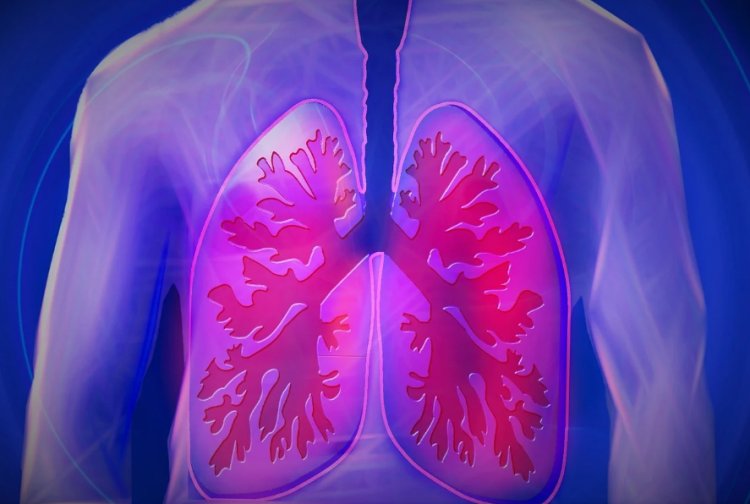Navigating Lung Cancer: Types, Risks, and Treatments Explained
Explore the types, risk factors, and treatment options for lung cancer in this comprehensive guide. Learn about the symptoms, diagnosis, staging, and management of the disease, along with finding support and resources for patients and their families.

Understanding Lung Cancer: Types, Risk Factors, and Treatment Options
Lung cancer remains one of the most prevalent and deadly forms of cancer worldwide. With various types, risk factors, and treatment approaches, navigating through the complexities of lung cancer can be daunting. In this blog post, we aim to shed light on different aspects of lung cancer, from its types to available treatment options.
Types of Lung Cancer:
Lung cancer is broadly categorized into two main types: Small Cell Lung Cancer (SCLC) and Non-Small Cell Lung Cancer (NSCLC). SCLC tends to grow and spread quickly, while NSCLC accounts for the majority of lung cancer cases and includes subtypes like squamous cell carcinoma, adenocarcinoma, and large cell carcinoma.
Understanding Risk Factors:
Smoking remains the leading cause of lung cancer, with both active smoking and exposure to secondhand smoke significantly increasing the risk. However, other environmental and occupational factors such as asbestos exposure, radon gas, air pollution, and workplace hazards can also contribute to the development of lung cancer.
Recognizing Symptoms:
Common symptoms of lung cancer include persistent cough, chest pain, shortness of breath, wheezing, coughing up blood, fatigue, and unexplained weight loss. It's essential to pay attention to these symptoms, especially if they persist or worsen over time.
Diagnosis and Staging:
Diagnosing lung cancer typically involves imaging tests like X-rays and CT scans, followed by biopsy procedures to confirm the presence of cancerous cells. Staging, which determines the extent of cancer spread, helps in planning the most appropriate treatment strategy.
Treatment Options:
Treatment for lung cancer depends on various factors, including the type and stage of cancer, as well as the patient's overall health. Options may include surgery, radiation therapy, chemotherapy, targeted therapy, immunotherapy, or a combination of these approaches. Each treatment modality aims to remove or destroy cancer cells while minimizing side effects and preserving quality of life.
Managing the Disease and Prognosis:
After treatment, patients require ongoing monitoring and support to manage potential side effects and maintain their well-being. Prognosis depends on several factors, including the stage of cancer at diagnosis, the type of lung cancer, the patient's response to treatment, and overall health.
Finding Support:
Facing lung cancer can be overwhelming, but no one has to go through it alone. Support groups, online resources, and patient advocacy organizations offer valuable support, information, and guidance to patients and their families throughout their cancer journey.
Conclusion:
While lung cancer presents significant challenges, advances in research and treatment offer hope for improved outcomes and quality of life for patients. By raising awareness, promoting early detection, and providing comprehensive support, we can make a positive impact in the fight against lung cancer.
Here are some top oncology treatment hospitals in Germany, the UK, and Turkey:

Germany:
- University Hospital Heidelberg - Known for its comprehensive cancer center and innovative treatments.
- Charité - Universitätsmedizin Berlin - One of Europe's largest university hospitals with a strong oncology department.
- University Hospital Essen - Known for its expertise in various cancer treatments and research.
- University Hospital Frankfurt - Offers specialized cancer treatment and research programs.
- University Hospital Freiburg - Known for its advanced cancer care and research facilities.
United Kingdom:
- The Royal Marsden Hospital, London - A world-renowned cancer center with a strong focus on research and innovative treatments.
- Christie NHS Foundation Trust, Manchester - One of Europe's largest cancer treatment centers with a reputation for excellence.
- Guy's Hospital, London - Offers comprehensive cancer care and access to cutting-edge treatments.
- University College London Hospitals NHS Foundation Trust - Known for its expertise in cancer care and research.
- The Clatterbridge Cancer Centre, Liverpool - A leading cancer treatment center with a focus on patient-centered care.
Turkey:
- Acıbadem Healthcare Group - Known for its advanced oncology treatments and comprehensive cancer care.
- Memorial Healthcare Group - Offers a wide range of cancer treatments and personalized care.
- Medical Park Hospitals Group - Known for its expertise in cancer treatment and research.
- Anadolu Medical Center - Offers advanced cancer treatments and personalized care plans.
- Florence Nightingale Hospital, Istanbul - Known for its comprehensive cancer care services and experienced oncologists.

Please note that the availability of specific treatments and the reputation of hospitals may vary, so it's recommended to research further or consult with a healthcare professional for personalized recommendations.
Coupoly offers a complimentary Medical Concierge Service, connecting you with leading doctors and clinics.
Reach out to us today.
Get in Touch
What's Your Reaction?




















